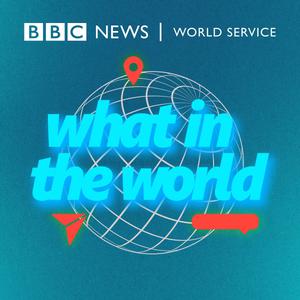
What in the World
BBC World Service
Helping you make sense of what’s happening in your world. Big stories, small stories and everything in between. Understand more, feel better. Five days a week, Monday to Friday.
- 15 minutes 6 secondsWhy is ChatGPT so flirty?
Open AI has just revealed the latest version of the AI chatbot ChatGPT. It’s called GPT-4o and is faster, more friendly, and even flirtatious. Tech journalist Rhiannon Williams explains how it differs from previous versions, and what this means for the future of AI technology.
But not everyone has equal access to ChatGPT. Grace Kejo, a 17-year-old student in Tanzania, shares why. Plus, Maria Clara Montoya describes how AI voices have changed over time: from the 1950s speech recognition systems to Siri and Alexa, and the present day.
Instagram: @bbcwhatintheworld WhatsApp: +44 0330 12 33 22 6 Email: [email protected] Presenter: Laura Cress Producers: Mora Morrison and Maria Clara Montoya Editor: Julia Ross-Roy
15 May 2024, 2:00 pm - 10 minutes 25 secondsIs the world experiencing more flooding?
Several nations have suffered flooding in just the last few months. Brazil, Kenya, Indonesia and China are just some of those that have been hit. Many people have died and thousands have been forced to move away from their homes.
Floods are common and can happen at any time during the year. However, are we seeing more than usual these days? And how much impact is the El Nino weather system having? BBC Climate Reporter Georgina Rannard explains what’s been happening and why.
We hear from listener Leandro who sent us a voice message from the Brazilian state of Rio Grande do Sul, where more than half a million people have been displaced from their homes.
And eight months on from floods which hit Eastern Libya, the nation is continuing to rebuild from its catastrophic event. The BBC’s Amira Fathalla describes what it’s like on the ground today.
Instagram: @bbcwhatintheworld WhatsApp: +44 0330 12 33 22 6 Email: [email protected] Presenter: Beverly Ochieng Producers: Josh Jenkins and Adam Chowdhury Editor: Simon Peeks
14 May 2024, 1:30 pm - 16 minutes 56 secondsWhy was Eurovision so controversial this year?
The Eurovision Song Contest is the biggest music competition in the world. Countries from all over Europe, and some from outside (we’re looking at you Australia), compete to reach the Grand Final and win the iconic glass microphone trophy. The winner also gets the honour of hosting next year’s event, which brings big crowds and parties galore to the host city.
This year’s event was held in Malmö, Sweden on the 50th anniversary of ABBA’s victory in the event. This year Switzerland’s Nemo won with their song ‘The Code’. They are the first non-binary artist to win the competition. However, there was plenty of controversy beyond the celebrations.
In the build-up to Saturday’s Grand Final, there were protests against Israel’s inclusion because of the war in Gaza. Eden Golan performed the song ‘Hurricane’ which earned fifth place for Israel. Several acts ended their performances with messages such as "love will triumph hate" and "peace will prevail."
What in the World’s William Lee Adams was in Malmö reporting from the event and tells us everything we need to know about Eurovision 2024.
Instagram: @bbcwhatintheworld WhatsApp: +44 0330 12 33 22 6 Email: [email protected] Presenter: Adam Chowdhury with William Lee Adams Producer: Mora Morrison Editor: Simon Peeks
13 May 2024, 3:41 pm - 12 minutes 5 secondsWhy North Korea’s TikTok hit is so catchy
If you’ve been scrolling on TikTok recently, you might have come across the viral song out of North Korea called ‘Friendly Father’. It’s been released by the country’s leader Kim Jong Un. Frances Mao, from the BBC’s bureau in Singapore, explains why this song went viral, and what it tells us about the regime.
Over in Russia, the nation’s annual Victory Day has taken place, partly to show off Russia’s military capacity. We talk to the BBC Monitoring’s Alistair Coleman about what message these parades send. Plus, the BBC’s China analyst Kerry Allen describes China’s propaganda methods.
Instagram: @bbcwhatintheworld WhatsApp: +44 0330 12 33 22 6 Email: [email protected] Presenter: Alex Rhodes Producers: Mora Morrison and Adam Chowdhury Editor: Julia Ross-Roy
10 May 2024, 1:41 pm - 13 minutes 58 secondsWhere does our rubbish go?
We throw tonnes of rubbish away and globally we’re throwing away more than ever. But what happens to it? Well, that depends on where in the world you live. Some gets recycled, some gets burned and some ends up in dumps or landfill.
British author Oliver Franklin-Wallis has written a book all about rubbish (Wasteland: The Dirty Truth About What We Throw Away, Where It Goes, and Why It Matters). He explains where some of it ends up - and why he’s hopeful about the global waste situation. The BBC’s Duc Ha tells us about the impact of imported waste and recycling on Vietnam.
Also we hear about the UN’s Global Treaty to End Plastic Pollution; the BBC’s Esme Stallard breaks down what it is and whether it’ll make a difference. Betty Osei Bonsu, 26, from the Green Africa Youth Organisation, has been attending UN summits where this treaty has been discussed. She describes what it was like and what her organisation is doing to try to reduce plastic pollution in Ghana and Uganda.
Email: [email protected] WhatsApp: +44 0330 12 33 22 6 Presenter: Alex Rhodes Producers: Julia Ross-Roy and Benita Barden Editor: Verity Wilde
9 May 2024, 1:30 pm - 10 minutesDrake v Kendrick Lamar: What’s the beef?
Two of the biggest names in hip-hop right now, Drake and Kendrick Lamar, are certainly not friends anymore. Their beef is escalating as they release diss track after diss track. Lamar has dropped the likes of ‘Euphoria’ and ‘Meet the Grahams’ whilst Drake has released ‘Family Matters’ and ‘Push Ups’.
The musical feud is spilling into real life as well. On Tuesday, police say a security guard was shot outside Drake’s home in Toronto, Canada. They’ve added that it’s too early to say who exactly was involved in the incident and that the victim is in a serious condition in hospital.
Music journalist Nicolas-Tyrell Scott tells us everything we need to know about Drake v Kendrick.
The beef isn’t just happening in hip-hop. Afrobeat stars Davido and Wizkid are clashing too. Culture journalist Nelson CJ explains the battle and what beef is like in the Afrobeat world.
Instagram: @bbcwhatintheworld WhatsApp: +44 0330 12 33 22 6 Email: [email protected] Presenter: Hannah Gelbart Producers: Josh Jenkins and Adam Chowdhury Editor: Verity Wilde
8 May 2024, 1:30 pm - 13 minutes 48 secondsCan social media apps help you save money?
Social media platforms, like Instagram and Xiaohongshu, are full of shopping tips to help you spend. But they can also help you save, partly by providing support and advice through groups of like-minded individuals - or, in China, da zi. This is a growing trend, especially among young women.
The BBC’s Sylvia Chang explains why they’re joining, and how this could impact China’s economy. We also hear from Anita Nkonge, in Kenya, about a popular saving challenge there.
Plus, if you’re currently on a budget we’ve got five top tips on how to save from Ashley Lee (@hermoneymastery on TikTok).
Instagram: @bbcwhatintheworld WhatsApp: +44 0330 12 33 22 6 Email: [email protected] Presenter: Hannah Gelbart Producers: Mora Morrison, Maria Clara Montoya and Julia Ross-Roy Editor: Verity Wilde
7 May 2024, 1:39 pm - 15 minutes 8 secondsWhere’s all the sex gone in movies?
Challengers. Poor Things. Saltburn. Three Hollywood movies released in the last six months which haven't held back on sex. However, the stats tell us movies in America are actually getting less steamy…
A study from The Economist suggests that sexual content in movies has dropped by 40% since 2000. BBC Culture reporter, Annabel Rackham, explains what’s behind this Hollywood trend.
Intimacy co-ordinators are a more regular sight on sets these days, helping people in front of the camera and behind it to navigate their way through a sensitive scene. Alicia Rodis, an intimacy co-ordinator who’s worked on Watchmen, And Just Like That and The Deuce, explains what the job entails.
Plus, BBC Asian Network’s Haroon Rashid describes how sex and romance is treated in Bollywood. Instagram: @bbcwhatintheworld WhatsApp: +44 0330 12 33 22 6 Email: [email protected] Presenter: Alex Rhodes Producers: Emily Horler, Baldeep Chahal and Adam Chowdhury Editor: Verity Wilde
6 May 2024, 1:30 pm - 14 minutes 52 secondsWhy are so many people in gaming losing their jobs?
Epic Games. Microsoft. Riot Games; owners of the biggest computer game titles in the world and part of a gaming industry which has been valued at $200 billion. That’s more than the music and entertainment industry combined. It’s not all plain sailing though.
Epic Games, which created Fortnite, recently cut 870 jobs. Microsoft, which now owns Activision-Blizzard; famous for the Call of Duty and Red Dead Redemption series, announced 1,900 job losses earlier this year. League of Legends maker Riot Games reduced their workforce by 10%, which meant 530 job cuts. It’s estimated that 18,000 jobs have been lost over the past couple of years. BBC gaming expert Mel Ramsay explains what’s going on. Also, Harriet in the UK and Francis from Canada share their experiences of being laid off. They give their views on the impact on the gaming sector and how to improve things for employees.
And we take a quick look at the computer game sector in Nigeria, where the demand for home grown mobile gaming is taking off.
Instagram: @bbcwhatintheworld WhatsApp: +44 0330 12 33 22 6 Email: [email protected] Presenter: Alex Rhodes Producers: Julia Ross-Roy, Josh Jenkins and Adam Chowdhury Editor: Verity Wilde
3 May 2024, 1:30 pm - 14 minutes 24 secondsWhy is Zimbabwe launching a new currency?
Zimbabwe has a brand new currency; it’s called the ZiG (Zimbabwe Gold) and it’s backed by the country’s gold reserves. This is the third time they’ve launched a new currency in ten years and 80% of transactions in the country are now carried out in US dollars. Can the government persuade its citizens that this one will remain stable and not deflate?
The BBC’s Zimbabwe correspondent Shingai Nyoka explains how people pay for stuff in the country and why the government has brought in a new currency. Two guys in Harare tell us what they make of the ZiG, and whether they’re using it instead of the US dollar.
Also Baldeep Chahal from the What in the World team brings us some other examples of countries changing their currency and chats about whether it ever works.
Instagram: @bbcwhatintheworld WhatsApp: +44 0330 12 33 22 6 Email: [email protected] Presenter: Alex Rhodes Producers: Julia Ross-Roy and Baldeep Chahal Editor: Verity Wilde
2 May 2024, 1:31 pm - 9 minutes 51 secondsWhy are student protests in the US spreading?
Demonstrations over the war in Gaza have taken place at several universities in the US over the past few weeks.
They have spanned from Columbia University in New York, to universities in Chicago, Texas and California.
In the last month, more than a thousand people have been arrested.
The BBC’s North America Correspondent Nomia Iqbal explains what has been happening and how this might affect the upcoming US election.
And Bernd Debusmann Jr tells us about the history of student demonstrations in America.
Instagram: @bbcwhatintheworld WhatsApp: +44 0330 12 33 22 6 Email: [email protected] Presenter: Hannah Gelbart Producers: Emily Horler, Maria Clara Montoya, Josh Jenkins and Adam Chowdhury Editor: Verity Wilde
1 May 2024, 1:41 pm - More Episodes? Get the App
Your feedback is valuable to us. Should you encounter any bugs, glitches, lack of functionality or other problems, please email us on [email protected] or join Moon.FM Telegram Group where you can talk directly to the dev team who are happy to answer any queries.
 The Real Story
The Real Story
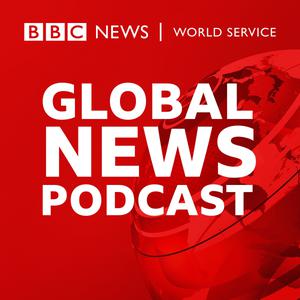 Global News Podcast
Global News Podcast
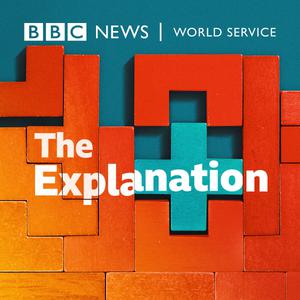 The Explanation
The Explanation
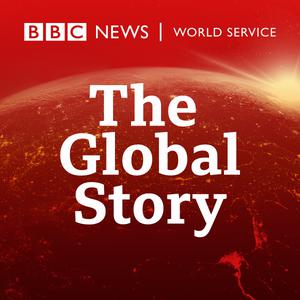 The Global Story
The Global Story
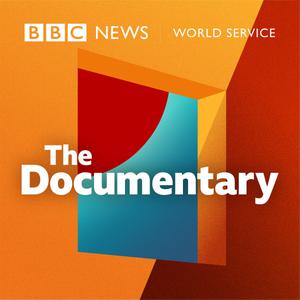 The Documentary Podcast
The Documentary Podcast
 The Inquiry
The Inquiry